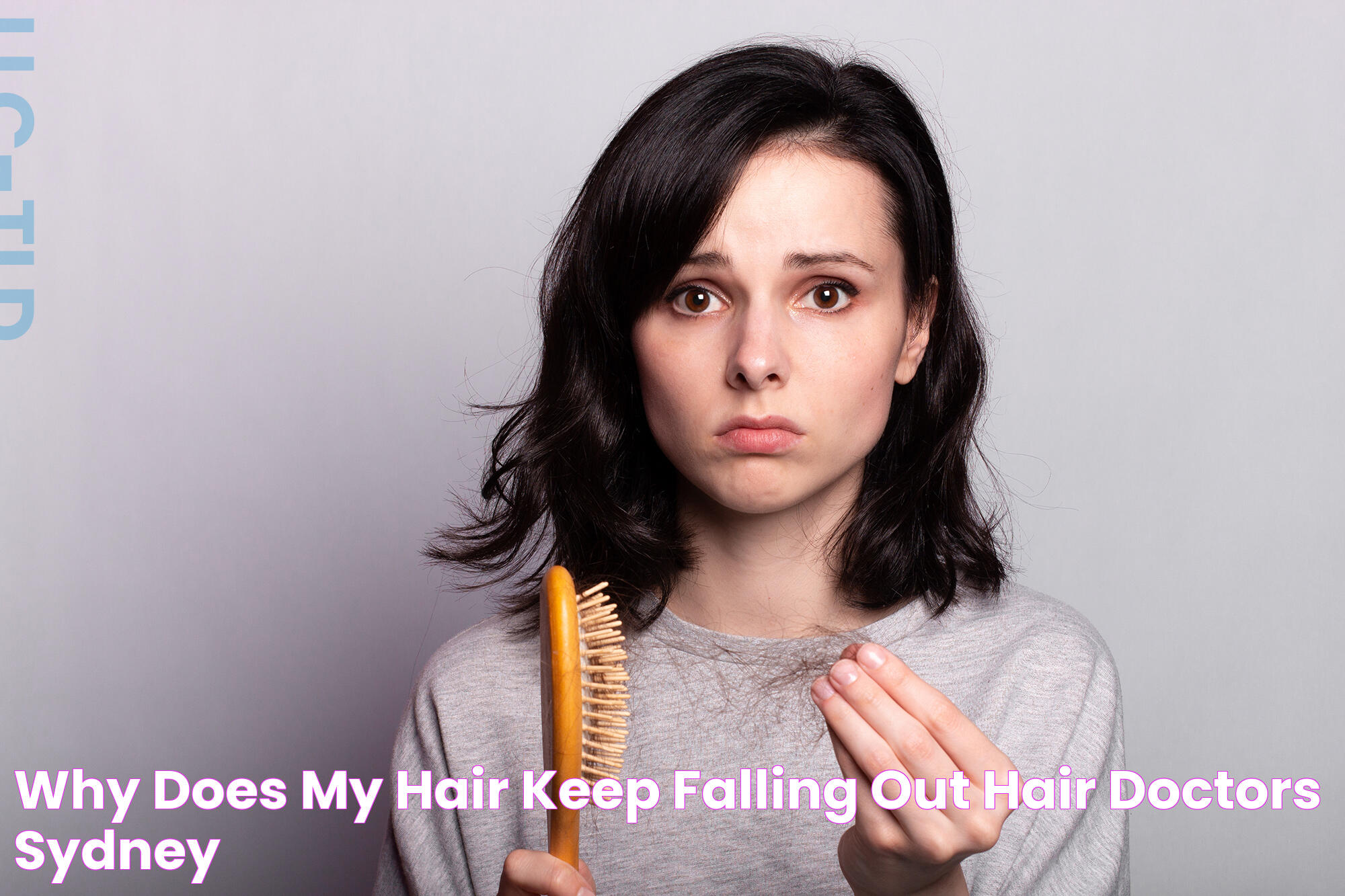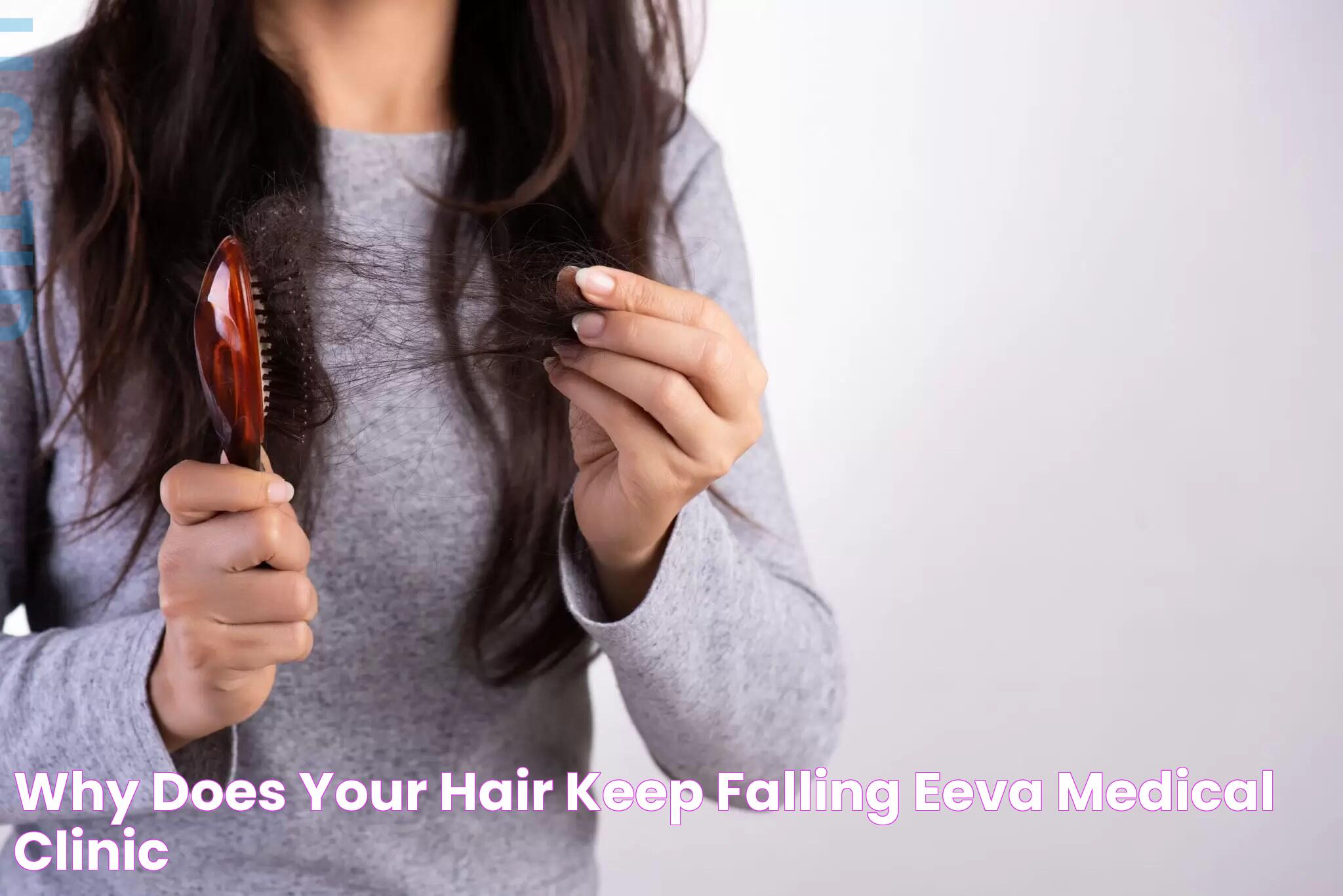Are you constantly finding strands of hair on your pillow, comb, or in the shower drain, leaving you to wonder, "Why does my hair keep falling out?" You're not alone. Hair loss is a common concern affecting millions worldwide, transcending age, gender, and ethnic backgrounds. The frustration and distress caused by noticing thinning hair can be immense, leading many to seek answers and solutions. Understanding the root causes and available treatments can help alleviate these concerns and restore confidence in one's appearance.
Hair loss, medically known as alopecia, can stem from a myriad of factors ranging from genetic predispositions to lifestyle choices. While losing some hair daily is perfectly normal, excessive shedding could indicate an underlying issue that needs addressing. The importance of identifying the specific cause of hair loss cannot be overstated, as it is the first step towards finding an effective solution. With advancements in science and technology, there are numerous treatments and preventive measures available today to combat hair loss and promote regrowth.
This comprehensive guide aims to shed light on the various aspects of hair loss, exploring its causes, potential remedies, and preventive strategies. We'll delve into the science behind hair health, examine common myths, and provide practical tips to maintain luscious locks. Whether you're experiencing hair loss firsthand or are simply curious about maintaining healthy hair, this article offers valuable insights and solutions to address your concerns.
Read also:In Vitro A Closer Look At Its Impact And Applications
Table of Contents
- What is Hair Loss?
- Why Does My Hair Keep Falling Out?
- Common Causes of Hair Loss
- Are Genetic Factors to Blame?
- How Does Stress Impact Hair Health?
- Can Nutritional Deficiencies Cause Hair Loss?
- Understanding Hormonal Changes
- Are My Hair Care Practices Causing Damage?
- Medical Conditions Linked to Hair Loss
- Effective Treatments for Hair Loss
- Exploring Natural Remedies
- Preventing Hair Loss - Tips & Tricks
- Debunking Myths About Hair Loss
- FAQs
- Conclusion
What is Hair Loss?
Hair loss refers to the partial or complete absence of hair from areas of the body where it normally grows, particularly the scalp. It's a natural part of the hair growth cycle, which includes phases of growth, rest, and shedding. Typically, individuals lose about 50 to 100 hairs daily, but when shedding surpasses regrowth, noticeable hair thinning occurs. Hair loss can be temporary or permanent, depending on its cause, and can affect anyone, although it's more prevalent in older adults.
Why Does My Hair Keep Falling Out?
Experiencing excessive hair fall can be alarming, prompting many to ask, "Why does my hair keep falling out?" The answer may vary from person to person, as several factors could be at play. Common culprits include genetic predispositions, hormonal imbalances, nutritional deficiencies, stress, and certain medical conditions. Identifying the specific cause of hair loss is crucial to determining the most effective treatment or preventive strategy.
Common Causes of Hair Loss
Hair loss can be attributed to a multitude of factors, some of which are interconnected. Here are some common causes:
- Genetic Factors: A family history of hair loss can increase your likelihood of experiencing it.
- Hormonal Changes: Conditions like pregnancy, menopause, and thyroid issues can affect hair health.
- Medical Conditions: Diseases such as alopecia areata, scalp infections, and lupus can result in hair loss.
- Medications: Drugs used for cancer, arthritis, depression, and heart problems can have hair loss as a side effect.
- Stress: Physical or emotional stress can lead to temporary hair shedding.
- Poor Nutrition: Lack of essential nutrients like iron, zinc, and proteins can weaken hair strands.
- Hair Care Practices: Over-styling, heat treatment, and chemical products can damage hair.
Are Genetic Factors to Blame?
Genetics play a significant role in hair loss, especially in cases of androgenetic alopecia, commonly known as male or female pattern baldness. This condition is hereditary and can be inherited from either parent. It typically presents itself as a receding hairline in men and thinning hair on the crown in women. Genetic hair loss is progressive, meaning it worsens over time, but treatments like minoxidil and finasteride can help slow down the process.
How Does Stress Impact Hair Health?
Stress is a well-known trigger for hair loss, with conditions like telogen effluvium and trichotillomania being directly linked to it. Telogen effluvium occurs when a significant stress event pushes large numbers of hair follicles into a resting phase, leading to increased shedding. Trichotillomania, on the other hand, is a psychological disorder where individuals feel compelled to pull out their hair. Managing stress through relaxation techniques, exercise, and therapy can help mitigate its effects on hair health.
Can Nutritional Deficiencies Cause Hair Loss?
Yes, nutritional deficiencies can contribute to hair loss. Hair is composed of keratin, a type of protein, and requires a range of nutrients to remain healthy and strong. Deficiencies in iron, zinc, biotin, and vitamins A, D, and E can lead to hair thinning and breakage. A balanced diet rich in proteins, fruits, vegetables, and whole grains is essential for maintaining optimal hair health. Supplements may also be beneficial for those unable to meet their nutritional needs through diet alone.
Read also:Benefits And Uses Of Natural Body Oil For Skin Health
Understanding Hormonal Changes
Hormonal fluctuations can significantly impact hair growth cycles, leading to temporary or permanent hair loss. Conditions such as pregnancy, childbirth, menopause, and thyroid disorders are known to affect hormone levels, which in turn can affect hair density and texture. For instance, postpartum hair loss is common as hormone levels readjust after childbirth. Similarly, thyroid imbalances can cause hair to become thin and brittle. Addressing underlying hormonal issues through medical intervention can help restore hair health.
Are My Hair Care Practices Causing Damage?
Improper hair care practices can lead to damage and increased shedding. Frequent use of heat styling tools, chemical treatments, tight hairstyles, and harsh hair products can weaken hair shafts and cause breakage. To minimize damage, it's advisable to use heat protectants, avoid tight hairstyles, and opt for gentle, sulfate-free products. Regular trims, deep conditioning treatments, and reducing the frequency of chemical processes can also promote healthier hair.
Medical Conditions Linked to Hair Loss
Certain medical conditions are associated with hair loss, either as a primary symptom or a secondary effect. Alopecia areata, an autoimmune disorder, causes patchy hair loss on the scalp and other body parts. Scalp infections, such as ringworm, can lead to temporary hair loss. Chronic illnesses like lupus and diabetes may also contribute to thinning hair. It's essential to consult with a healthcare professional for a proper diagnosis and tailored treatment plan if you suspect a medical condition is causing your hair loss.
Effective Treatments for Hair Loss
Various treatments are available for hair loss, ranging from over-the-counter solutions to medical procedures. Some popular options include:
- Minoxidil: A topical treatment that stimulates hair growth and slows down hair loss.
- Finasteride: An oral medication that prevents the conversion of testosterone to DHT, a hormone linked to hair loss.
- Hair Transplant: A surgical procedure that involves transferring hair follicles from a donor site to balding areas.
- Laser Therapy: Low-level laser therapy devices can enhance hair growth by improving blood circulation to the scalp.
- Platelet-Rich Plasma (PRP): Injections that use a patient's own plasma to stimulate hair follicles.
Exploring Natural Remedies
For those seeking alternative solutions, several natural remedies may aid in promoting hair health and preventing loss. These include:
- Essential Oils: Oils like rosemary, peppermint, and lavender can improve circulation to the scalp and stimulate hair follicles.
- Aloe Vera: Known for its soothing properties, aloe vera can help reduce dandruff and unblock hair follicles.
- Onion Juice: Rich in sulfur, onion juice can enhance blood circulation and promote hair growth.
- Green Tea: The antioxidants in green tea can improve hair health and prevent hair loss.
Preventing Hair Loss - Tips & Tricks
Preventing hair loss involves adopting healthy habits and making lifestyle adjustments. Here are some tips to maintain strong, healthy hair:
- Maintain a balanced diet rich in vitamins and minerals.
- Handle hair gently and avoid harsh treatments.
- Stay hydrated and manage stress levels.
- Avoid smoking and limit alcohol consumption.
- Regularly check for underlying medical conditions.
Debunking Myths About Hair Loss
Numerous myths surround hair loss, often leading to misconceptions and ineffective treatments. Here are some common myths debunked:
- Myth: Wearing hats causes hair loss. Reality: Hats do not cause hair loss unless they are excessively tight.
- Myth: Washing hair too often leads to hair loss. Reality: Washing hair regularly keeps the scalp healthy and doesn’t cause hair loss.
- Myth: Cutting hair makes it grow faster. Reality: Hair growth occurs at the scalp level, unaffected by trimming.
FAQs
- Is hair loss reversible?
It depends on the cause. Some forms of hair loss are reversible with treatment, while others may be permanent. - Can stress cause hair loss?
Yes, stress can lead to temporary hair shedding conditions like telogen effluvium. - Are hair loss treatments effective?
Effectiveness varies; consult a healthcare professional for personalized advice. - Does diet affect hair health?
A balanced diet rich in nutrients supports healthy hair growth. - Can hair loss be prevented?
Adopting healthy lifestyle practices can help minimize the risk of hair loss. - Are natural remedies beneficial for hair loss?
Some natural remedies may support hair health, but results vary among individuals.
Conclusion
Hair loss is a multifaceted issue that affects many people worldwide. Understanding the various causes, from genetics and medical conditions to lifestyle factors, is crucial in identifying effective solutions. While some causes of hair loss are inevitable, many are manageable with the right approach. By adopting healthy practices, exploring treatment options, and debunking common myths, individuals can take proactive steps towards maintaining and improving their hair health. Whether through medical intervention or natural remedies, there are numerous ways to address hair loss and restore confidence in one's appearance.

